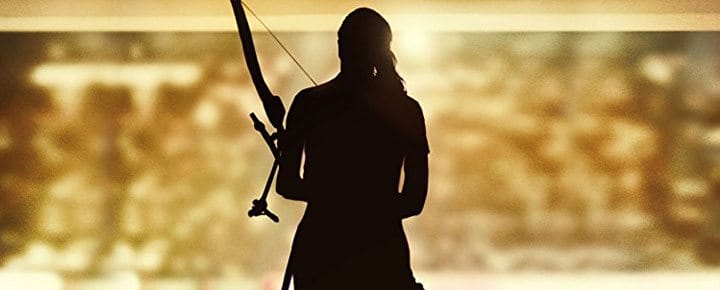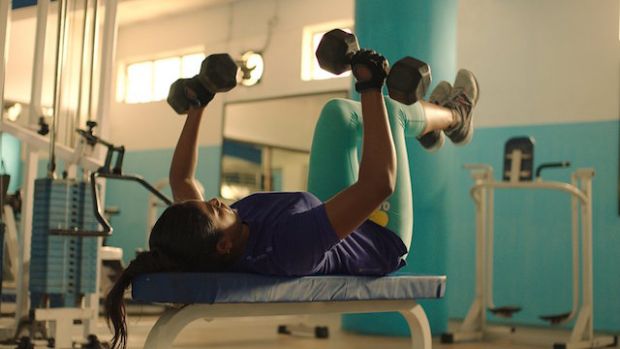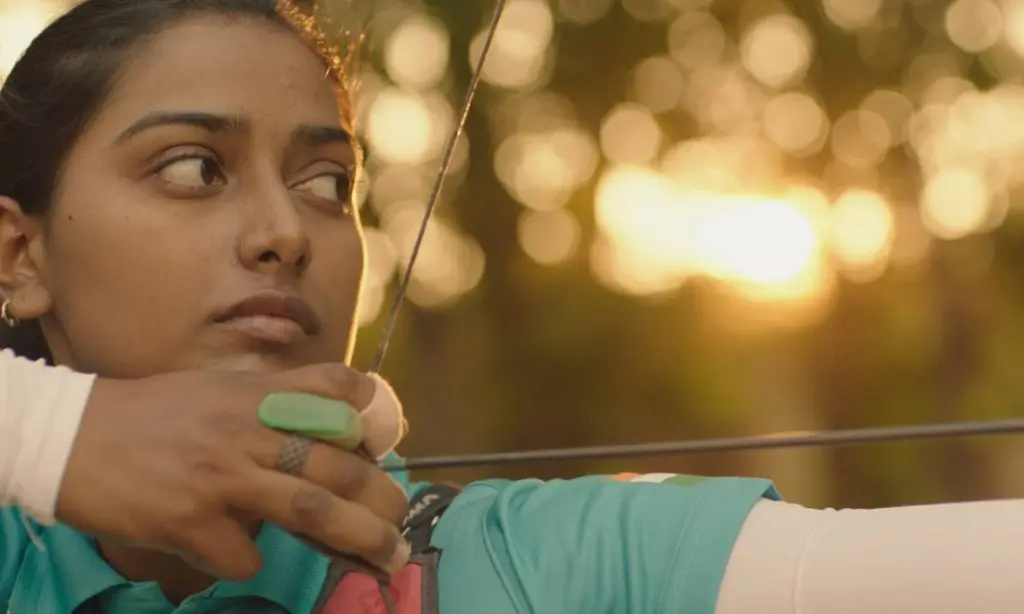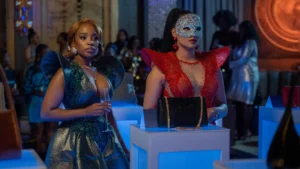Ladies First is a Netflix Original documentary short that tells the inspirational story of Deepika Kumari, who, after being born on a roadside to abject poverty, went on to become the number one archer in the world. Directed by Uraaz Bahl and produced by Shaana Levy-Bahl.
The first words in Ladies First are just about Deepika Kumari, but all women in India.
“Girls belong at home, not on the sports field. Sports are meant only for boys. Girls should cook, look after their home and raise children, that’s their role.”
“I won’t allow my daughter to work. If she wishes to, she can work after marriage. That’s for her husband to decide.”
“I won’t allow my daughter to participate in sports.”

This is the prevailing attitude in India, where Deepika Kumari was born on a roadside in a village where there are no working women, only housewives. For her efforts at a local hospital, her mother was never paid on time. The family lived in a ramshackle house that barely stands upright, which they shared with an aunt and uncle. For working, Deepika’s uncle often beat her mother. He appears in Ladies First, the latest original documentary short from Netflix, smiling to the camera. “Yes, I used to beat her,” he chuckles. “It was no big deal.”
This isn’t the first time Netflix have used their considerable powers to shine a dim light on poverty around the world. The Trader, another documentary short, opened a 23-minute window into a small town in Georgia that used potatoes for currency. But Ladies First isn’t just about abject poverty in rural India. It’s also about culturally-ingrained sexism; an open challenge to how the most populous nation on earth considers half of its people second-class citizens.
Deepika Kumari, you can immediately tell, is different. She recognises the injustice for what is it. When she was a child, her parents purchased a clay house – more secure and tasteful than the one they actually lived in – and Deepika insisted it was a helicopter; that one day, her and her parents would climb inside and fly away.
In a sense, they did.
Deepika was originally attracted to archery because it was free. If she could leave home and live instead on the training campus, she could take the strain off of her struggling parents. She travelled 130 kilometres to attend the lessons. In less than four years, she was the world’s number one player.
Deepika medalled in pretty much every competition she entered. She made lots of money, and gave it to her parents, who used it to build a house that raised them out of poverty. There’s the clay house; the helicopter. They still have it.

But on the world stage, Deepika was unsuccessful. At the 2012 Olympic Games in London, England, she got smoked. Ladies First deploys a lot of archive footage that shows Deepika in stark contrast to her international competitors. She’s shy. Reserved. Embarrassed. Barely speaks.
This is how women in India are taught to behave. This is what they’re taught to be. Without the support of their nation, that of both the public and the government in terms of funding, proper training and care, Indian women hide themselves under the bright lights. No Indian woman has ever won an Olympic gold medal, in any event.
Deepika resolved to redeem herself at the 2016 games in Rio. In the qualifiers, she equalled the current world record in the recurve event. She should have been picked for the Olympic team there and then, but she wasn’t. India has no proper selection committee. The athletes who will eventually compete in the games continue to compete in trials every 15 days, and a World Cup. There’s no time for recovery. And so shortly before the tournament, Deepika got injured.
In the office of a specialist who tells her that it will take several months to rehabilitate her shoulder, Deepika is constantly interrupted by her male coaches and physiotherapists as she tries to describe the injury. “Let me explain,” she says. “I’m the one feeling the pain.”
She goes to Rio, injury and all. She’s given steroid injections in lieu of physiotherapy, and the Indian Olympic team travels to the games without a nutritionist, a trainer, or most importantly a mental coach. They’re accompanied instead by two government officials and a cook.
She loses again.
Ladies First is a fascinating, well-made, bold documentary that is not about Deepika Kumari and her failures on the world stage, or even her successes on the national one. It’s about challenging the ingrained cultural mentality that Indian women are somehow lesser than their male counterparts. That they aren’t worthy of sporting success. That the timid, humiliated women who shuffle quietly among other Olympic hopefuls, as afraid of success as they are of failure, are the women who should represent the rich and storied culture of India to the rest of the world.
So yes, Deepika Kumari loses at the Olympics. But at the end of Ladies First, we see her in the archery school that she built on her reputation as the world’s best, inspiring the young women there to be better. Maybe in Tokyo, at the 2020 Olympic Games, thanks to her they will be.




